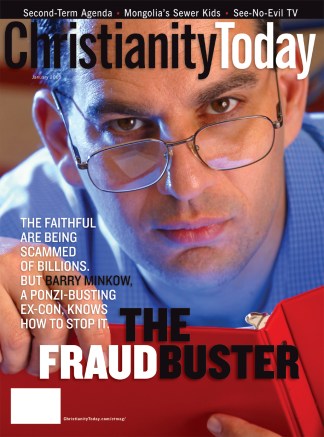Christian liberties organizations and pro-life groups are perplexed in the wake of the overwhelming decision by Californians last fall to fund embryonic stem-cell research. No legal challenges are imminent.
In November, 59 percent of California voters approved Proposition 71, the Stem-Cell Research and Cures Initiative. The measure authorizes the state to spend $300 million annually on research during the next decade. During the next 30 years the state will borrow an additional $3 billion to pay for the research.
Any ballot measure to reverse course would be at least two years away. Mike Spence, vice president of the California Pro-Life Council, an affiliate of the National Right to Life Committee, said a quicker and more practical way to counter the measure might be through the state legislature.
“We’re also looking at a possible court challenge,” Spence told Christianity Today. Spence said the appeal could hinge on cloning, which, while banned under national guidelines, will become part of embryonic stem-cell research.
Any legislative approach would require educating voters, Spence said. “From the number of Protestants and Catholics who voted for the proposition, it’s evident there are a lot of myths and misconceptions.”
An August Pew Research Center survey found that one-third of evangelicals thought it was more important to conduct research than to protect human embryos.
David Stevens, executive director of the Christian Medical Association, believes more Golden State residents are wary of embryonic stem-cell research when they understand the science behind it. Stevens lectured in California 17 times in just the first week after the election. He found that many listeners, even those at universities, did not understand that embryonic stem cells are difficult to culture, easily mutate, and can become cancerous.
“Californians went on a shopping binge and they won’t be able to take the clothes back,” Stevens said. “They put $3 billion down on something that’s highly speculative and unlikely to produce results.”
“[The law] is difficult to challenge in court or legislatively,” Stevens said. The only way to fight, according to Stevens, is to continue to inform the public by questioning the disinformation distributed during the campaign, including statements that cloning would be prevented during the research. “Actually it requires cloning, and they can kill up to the point of a child’s birth,” he said.
Brad Dacus, president of the Sacramento-based Pacific Justice Institute, believes passing a federal statute could help. “An act by Congress making embryonic stem-cell research unlawful would trump a state constitutional amendment,” Dacus said.
Another potential legal maneuver to slow down the research, says Dacus, could be suits by parents who haven’t signed away their rights for the embryos being used in research.
Copyright © 2005 Christianity Today. Click for reprint information.
Related Elsewhere:
Earlier Christianity Today coverage of stem cells and California’s stem cell referendum includes:
The Politics of Stem Cells | Why do some scientists and politicians insist on exploiting embryos? (Nov. 17, 2004)
It’s Not About Stem Cells | Why we must clarify the debate over harvesting embryos. (A Christianity Today editorial—Sept. 29, 2004)
California’s Prop. 71 Stem-Cell ‘Scam’ | Supporters of cloning embryos for research have $11 million to convince state voters. (Sept. 29, 2004)
The Proposition 71 Stem Cell Scam | The biotech lobby is attempting to buy a law in California, Wesley J. Smith says. (Aug. 17, 2004)
When Does Personhood Begin? | And what difference does it make? (June 18, 2004)
Cloning Report Breeds Confusion | Does it open the door to ‘therapeutic cloning’? (May 13, 2004)
More information is available on our Science & Health and Life ethics.










